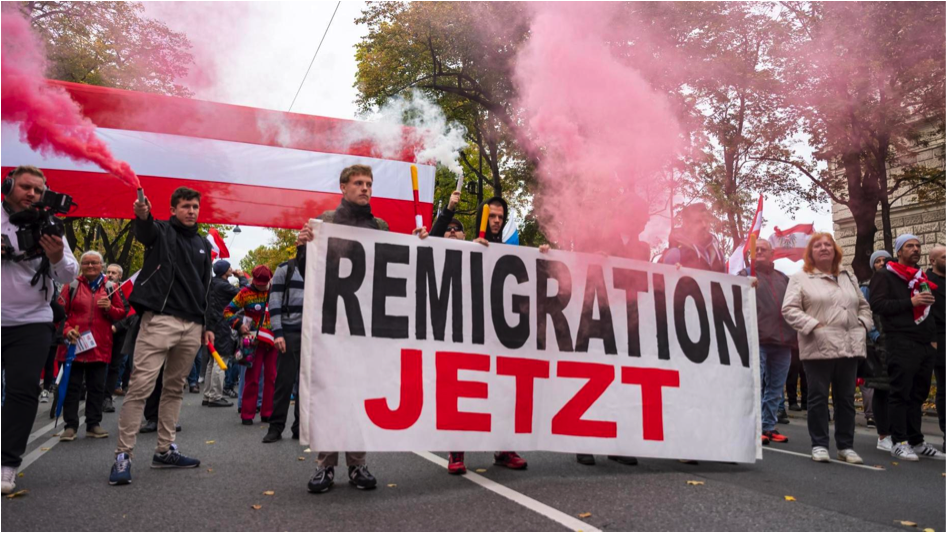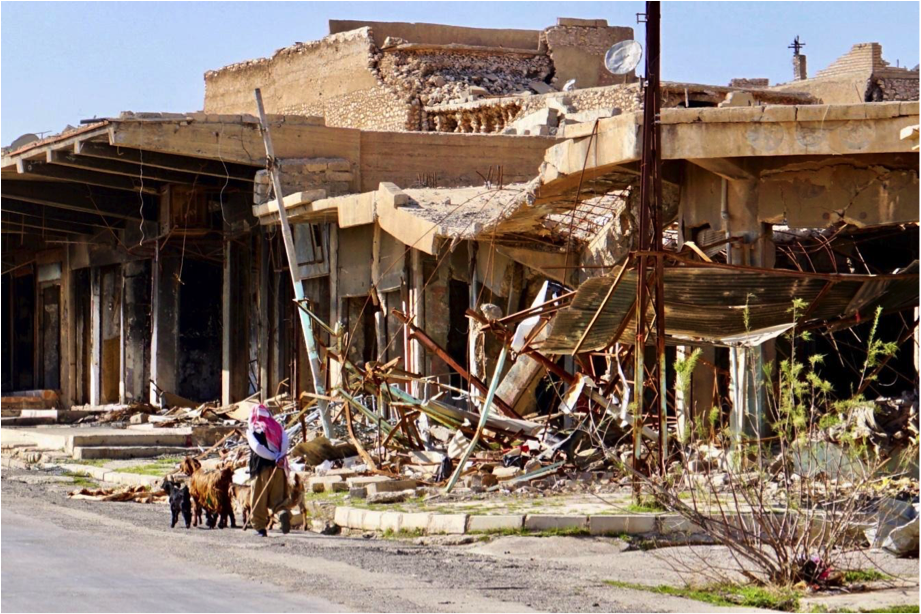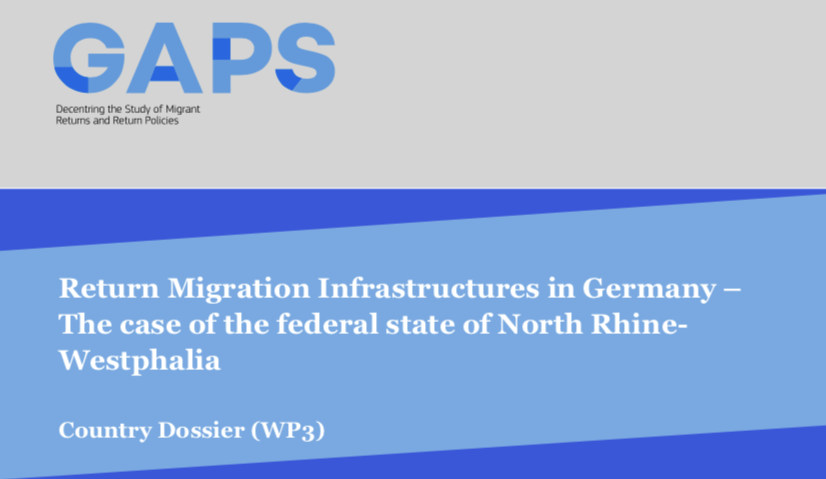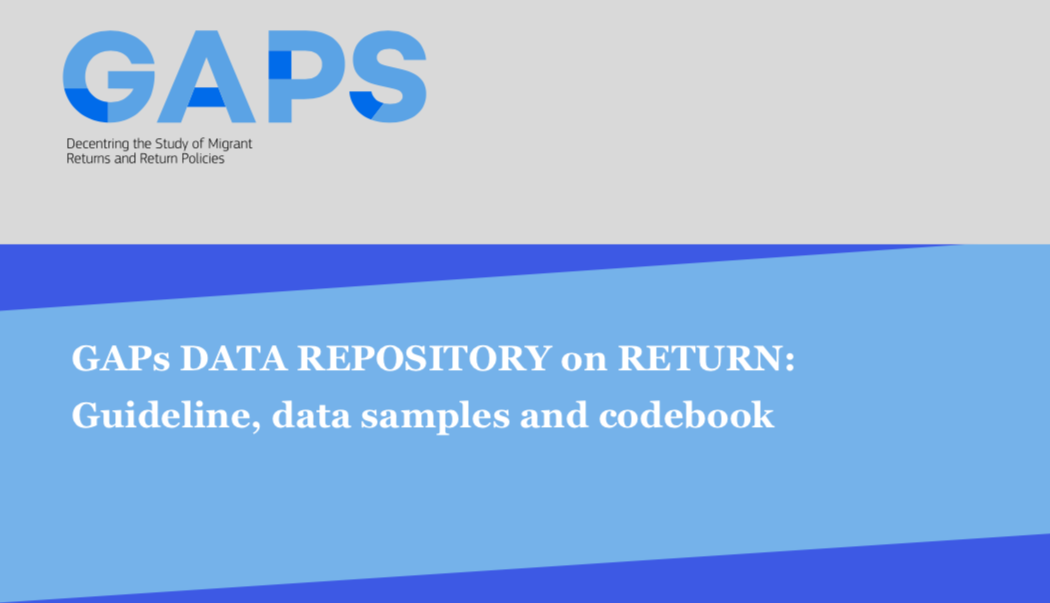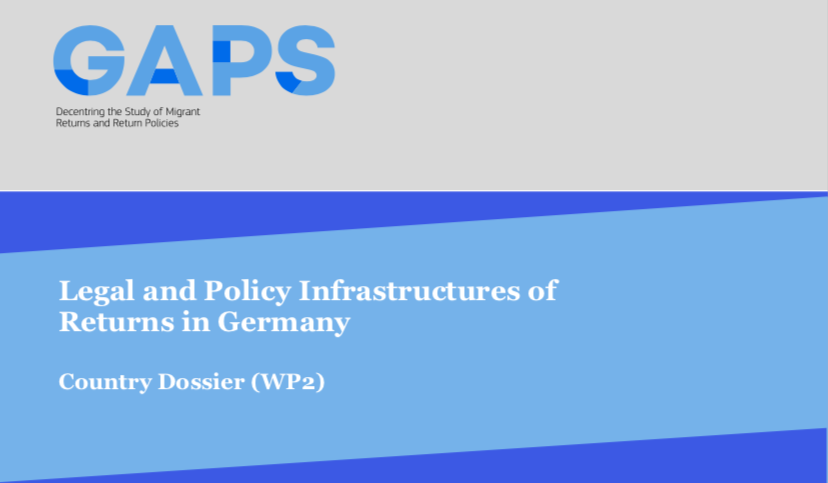Country Profile
GAPs Country Profile: Germany / Blog Posts
The Palestinians’ Sumud in The West Bank – Once You Leave, Return is Out of The Question
Selina Engelberth, Bonn International Centre for Conflict Studies
With the ongoing war in Gaza, the displacement of millions and overwhelming human suffering, it is understandable that attention is focused on the narrow coastal strip. However, in the shadow of Gaza, significant displacements are also occurring in the West Bank. Once displaced, Palestinians face no possibility of return and their sumud – steadfastness in the face of expulsion – remains remarkably high.
From Guest Worker Recruitment to “Remigration”: Tracing the Origins of Germany’s Post-War Politics of Return
Simon Ahrens, University of Oxford
On 25 November 2023, high-ranking members of Germany’s far-right AfD and centre-right CDU parties, neo-Nazis and sympathisers of the identitarian movement convened for a secret meeting near Potsdam. According to the investigative outlet Correctiv, their agenda included plans for what the far-right euphemistically calls “remigration” – the deportation of millions of people with a family history of migration, including “non-assimilated German citizens”. Yet demands for more and faster returns are not limited to the far-right. The ruling government has made returns a key component of its campaign against “irregular migration”, focusing on individuals without the right to remain in Germany. In January 2024, the German parliament passed the Repatriation Improvement Act, which expanded police powers to detain migrants and facilitate their repatriation or deportation. This led to 4.700 repatriations and deportations in the first three months of 2024, a 30 percent increase compared to the previous year.
Enhancing the Study of Return Migration Diplomacy through Qualitative Comparative Analysis
Samet Apaydın, University of Glasgow | Zeynep Sahin-Mencütek, BICC | Gerasimos Tsourapas, University of Glasgow
With the study of migration diplomacy gaining increased scholarly and policymaking attention in recent years, the GAPs project aims to further advance the field – particularly through innovative methodological tools. This short piece highlights one such advancement: the integration of Qualitative Comparative Analysis (QCA) into research on return policymaking, and its intersection with migration diplomacy strategies of sending and host states.
Nomination of “Remigration” as Un-word ["Unwort" in German] of the year by a Panel of German linguists: A reflection of German politics of return?
Ruth Vollmer, Bonn International Centre for Conflict Studies (BICC)
Since 1991, there has been an annual ritual in Germany: Around mid-January, a self-constituted jury, currently consisting of four linguists and one journalist, announces the “un-word” of the previous year, drawing from a pool of suggestions sent in by the public.
Yazidis in Germany: Don’t Deport - Negotiate
Carina Yıldırım-Schlüsing, Bonn International Centre for Conflict Studies (BICC) | Esther Meininghaus, Bonn International Centre for Conflict Studies (BICC)
Since I arrived here, I haven't taken a moment off, I've always tried to educate myself, I've taken the language up to C1, and I've always worked. And then my Abitur was only recognised as a Fachabitur [technical diploma], so I'm doing my Abitur at an evening school. And I did everything I could to stay here, to find a home here. But they want to deport me – Alia Hassan (in HAWÁR Help, 2023).
2023 marks the year in which the German parliament unanimously recognised the genocide of the Yazidi population in Shingal (kurd.) /Sinjar (arab.) in Iraq: a genocide of a religious minority by the so-called Islamic State (IS, arab. ad-daula al-islāmīya) in August 2014…
GAPs Country Profile: Germany / Publications
This Country Dossier on Germany presents an overview of the assisted and forced return migration infrastructures (RMIs) in Germany, focusing on the most populous federal state of Germany, North Rhine-Westphalia (NRW), as a case study. It examines how return migration governance is put into practice through the concept of RMIs. Federalism in Germany grants autonomy to local governments, and federal law assigns responsibility for return policies to municipal authorities. This leads to complex coordination among institutions that decide independently on procedures and technologies. Consequently, the staff of the foreigners authorities (Ausländerbehörden, ABHs) are often isolated when implementing decisions they did not make and are faced with the conflicting demands of overseeing integration and return.
The GAPs Data Repository provides an overview of available qualitative and quantitative data on national return regimes by structuring them into five main categories: profile, legislation, infrastructure, international cooperation and descriptive statistics. Each category, particularly statistics, includes several sub-categories. These categories are identified by consulting the literature review, existing datasets on migration, and insights from expertise/empirical data collection of 14 countries. The categories and sub-categories are chosen according to their relevance in understanding the return and readmission policies and practices, data accessibility, reliability, clarity as well as comparability. Data collection is carried out by national experts, entries are realized through REDCap Software ensuring a secure web connection with authentication and data logging. These enable systematic organisation, storage, and retrieval of data during and after the project. For viewing the entire data set or to contribute data entries please contact the coordinators of Horizon Europe project GAPs.
This report focuses on the legislative and institutional frameworks, as well as the procedural infrastructure related to the return of rejected asylum seekers and other unauthorised migrants from Germany between 2015 and 2023. The analysis shows that the political rhetoric of ‘closing the deportation gap’ and improving returns through increased effectiveness has had important policy consequences since 2015 and has continued under the current coalition government formed in 2021. The so-called return offensive rhetoric has been translated into legal provisions to increase the number and effectiveness of returns as well as a growing emphasis on finalising international migration ‘partnership’ agreements. Beyond politics of return, the field of return governance in Germany is very dynamic and, at the same time, reveals structural deficiencies, operational shortcomings, heterogeneous practices and internal contradictions. There are clear gaps in at least six areas, including legislative structure, institutional framework, international cooperation, data collection/sharing, implementation and political communication.





